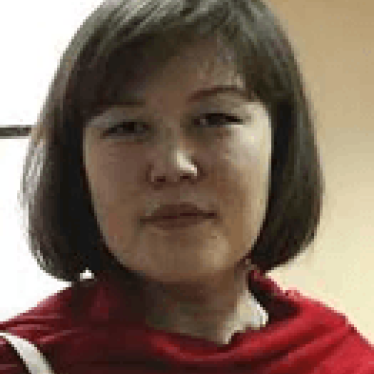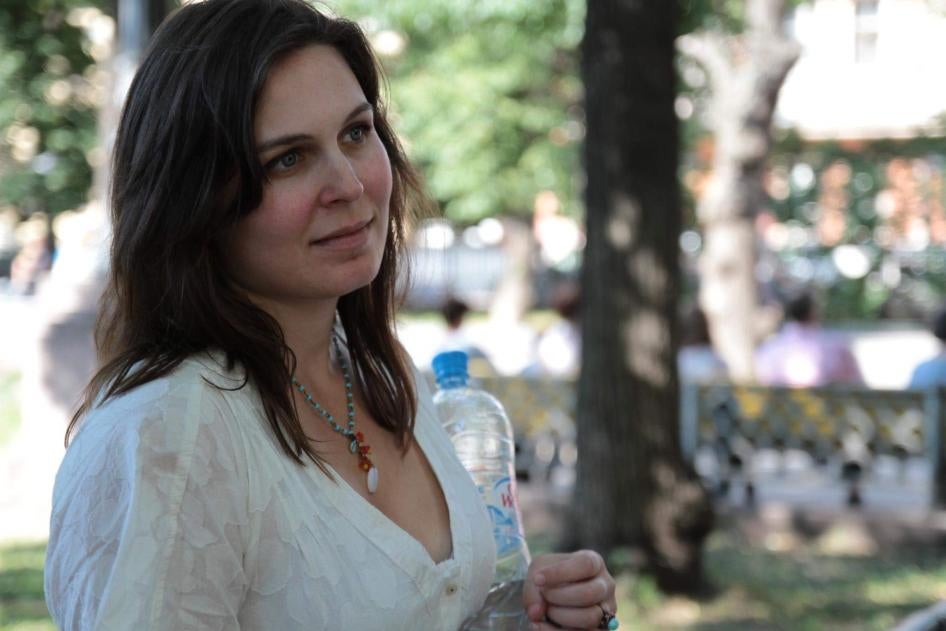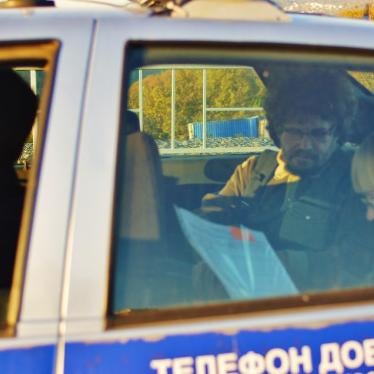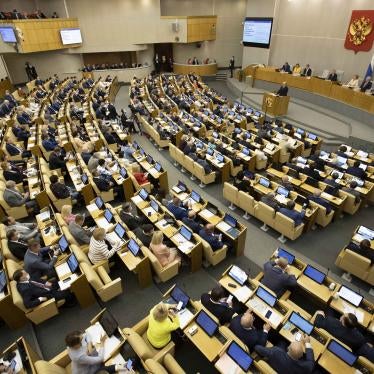Update: On February 9, a district court in Moscow rejected Vanessa Kogan’s lawsuit against the Interior Ministry, in which she contested the legality of the annulment of her residence permit.
Today, Russian authorities informed Vanessa Kogan, executive director of Stichting Justice Initiative (SJI), a prominent human rights group, that her Russian residence permit was revoked and she has two weeks to leave the country. Vanessa has lived legally in Russia for 11 years and is married with her family there. Now she must uproot herself and leave her life in Moscow behind. It is not clear if she’ll ever be allowed to return, but the prospects are dim.
Vanessa is American, and her husband and children are Russian nationals. Several months ago, she applied for Russian citizenship. Today, the migration office informed her that her application was rejected and her current residence permit annulled based on a law permitting authorities to do so if a person is “advocating for violent change of constitutional regime or otherwise presents danger to the Russian national security or to its nationals.”
The authorities did not explain how this relates to Vanessa, but it seems clear they view her work, leading an organization that represents victims of grave human rights abuses in the North Caucasus and survivors of domestic violence—as a threat. Maybe if Vanessa and SJI were not so successful at helping victims, Russian authorities would care less. SJI has submitted over 400 cases to the European Court of Human Rights and other bodies, and has won nearly 270, in which Russia had to pay over 25 million euro in compensation to victims.
For years, authorities have sought to hinder the organization’s work, through office raids and bureaucratic interference.
Vanessa’s expulsion also raises concerns for her right to family life. Given travel and entry limitations during the Covid-19 pandemic, it is unclear whether her husband could join her in the US. Their children are dual nationals, but now risk being separated from one of their parents.
In 2014, Russian authorities revoked the residence permit of another American woman, who had also lived in Russia for a decade and had a child with her Russian husband. She had worked as a consultant with several Russian NGOs. She hasn’t been able to return since. In 2018, the European Court of Human Rights ruled that Russia violated her right to family life.
But even successful legal challenges years later provide little relief when someone is forced to uproot their lives, leaving their families in limbo, and their work disrupted, due to retaliation by faceless state operatives.










